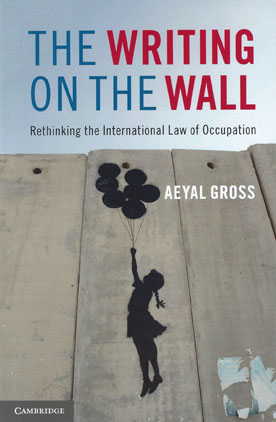
As Israel's control of the Occupied Palestinian Territory nears its fiftieth anniversary, The Writing on the Wall offers a critical perspective on the international law of occupation.
Advocating a normative and functional approach to occupation and to the question of when it exists, it analyzes the the application of humanitarian and human rights law, pointing to the risk of using the law of occupation in its current version to legitimize new variations of conquest and colonialism.
The book points to the need for reconsidering the law of occupation in light of changing forms of control, such as those evident in Gaza. Although the Israeli occupation is the main focal point; the book broadens its compass to look at other cases - Iraq, Northern Cyprus, and Western Sahara - highlighting the role that international law plays in all of these cases.